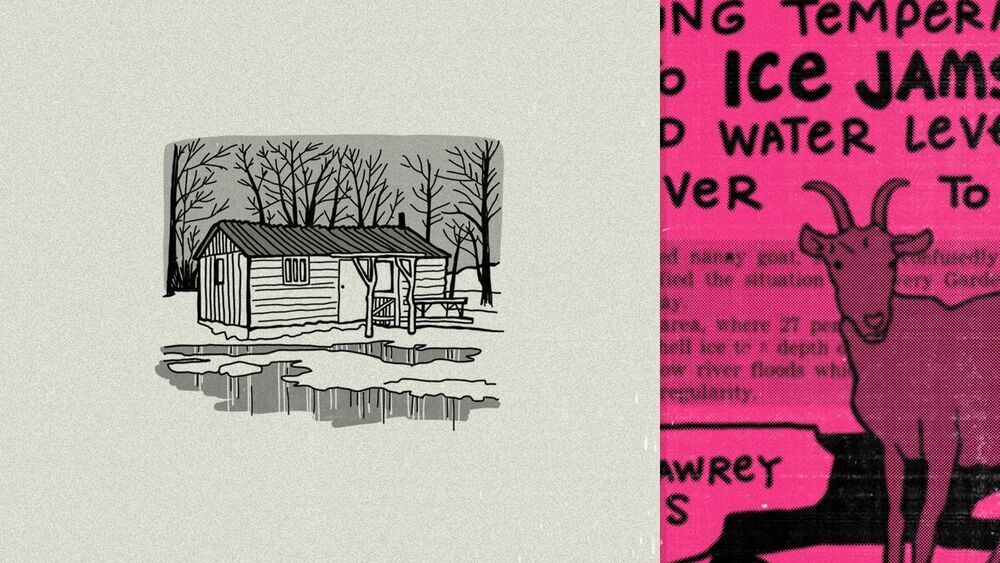
Photo: Chris Pecora
News in an age of disorientation
What’s changed — and what hasn’t.
On weekends, The Sprawl sends out an email newsletter called Saturday Morning Sprawl. You can subscribe here. Here is this week's dispatch.
A lot has changed in journalism—in both the making of it, and the reading of it—in recent years.
I sometimes think back to when I started writing for Fast Forward Weekly nearly 20 years ago. When one of your stories was published, you'd have to be satisfied that you brought your best to it. There was no instant digital feedback. Someone might mention your story to you or might not. Eventually, you might get a letter to the editor.
But the moments after publication were usually quiet ones, a welcome reprieve after the chaotic weekly miracle of getting the paper out the door.
Around 2007, comments were introduced on online stories. This was thrilling at the beginning, as you'd get instant feedback on your work, both positive and negative. Then Facebook and Twitter took off. Twitter in particular because useful for sharing, discussing and dissecting news. The Sprawl was launched into this maelstrom in 2017, and benefitted hugely from it.
By now, those quiet moments after publication were long gone. Now you were judging your work based on how it played on Twitter. I would decide, within 15 minutes of posting anything, whether it was a success or a flop—even if the story took more than 15 minutes to read, never mind comprehend. One learned how to tailor headlines and images and language to tap into visceral, emotional, instant reactions. You played it well or you didn't.
The moments after publication were usually quiet ones, a welcome reprieve after the chaotic weekly miracle of getting the paper out the door.
At its best, Twitter connected people. But as a journalist, if you weren't careful, Twitter also became a de facto assignment editor that had you pandering, consciously or unconsciously, to a specific ideological camp, always chasing the next social media high. The platform also elicited and rewarded constant commentary from journalists. This struck me as bizarre at times. Did I miss something? Am I now a head of state, that I feel compelled to make a statement on everything always?
I sometimes had the sense of being an automaton, a machine for correct opinions. "Awful," I might post atop some or other tragedy, just to have said something.
It occurred to me more than once: Am I even thinking my own thoughts here anymore? Whatever—it was mostly fun, it felt good, and I was subtly affirming all the correct opinions (for progressive urbanites) and disparaging the wrong ones, so where's the harm?
I wonder. Today, public trust in the news media is plummeting even as the journalism industry itself is in full collapse. Only 40% of Canadians trust news, according to Reuters's 2023 digital news report.
Social media platforms, meanwhile, are in the throes of full-on enshittification, a term coined by Cory Doctorow. "Here is how platforms die," Doctorow writes. "First, they are good to their users; then they abuse their users to make things better for their business customers; finally, they abuse those business customers to claw back all the value for themselves. Then, they die."
Canadian news remains blocked on Facebook and Instagram. On the publishing side, the dopamine hits of yesteryear have mostly faded away. For better or worse (and I think it's probably some of both), it doesn't work like that anymore.
Last week, after hitting "publish" on a big story (Canmore's Struggle to Curb Sprawl)—a deeply-reported piece involving months of interviews and research—I had that old experience of post-publishing quiet, which should be a good thing, but I found it so incredibly disquieting that I had to leave the house the next morning and go on a long walk.

Today, public trust in the news media is plummeting even as the journalism industry itself is in full collapse.
I find the current news landscape challenging as both a publisher and a reader/listener. I struggle to formulate a coherent or consistent news diet among the many fragments out there. I subscribe to The Atlantic, The Globe and Mail, The Line, LiveWire Calgary and the Calgary Herald—and a handful of Substacks. I've saved the LiveWire homepage to the home screen of my phone (which I highly recommend). I scan the Calgary subreddit.
I've been trying to make a habit of listening to CBC Radio on my walk to work in the mornings. Upon arrival, I'll sometimes switch on Real Talk with Ryan Jespersen (who nabbed an exclusive interview with the PM this week!).
As I write this, I realize I should resurrect my RSS feeder to help navigate all this. I just logged into my Feedly account—and yep, it's still there, still works! But I'm struck, scanning the headlines, by how thin the news is, how much of it is just rewritten announcements.
Occasionally on the weekend I'll go to the Daily Globe News Shop on 17 Avenue S.W. and splurge on a dead-tree Sunday edition of the New York Times. I will toss it on the table just to hear it go thump. The local papers, when you toss them, land with more of a ffffft, a whisper, little more sound than the Coffee News makes. They do not thump.
I struggle to formulate a coherent or consistent news diet among the many fragments out there.
Like most of us, I still consume a ton of media, most of it on a screen. But aside from the examples I just mentioned, most of what I take in is, frankly, garbage. It's thin and unsatisfying. Memes, reels, ads... I again have that strange sense of being an automaton—but an entirely passive one, inert.
Throughout the day, using the app Pocket, I do load up my Kobo with substantive articles to read later. (The Pocket-Kobo integration is one of the few remaining delights in our technological hellscape.) Many of these articles are about the plight of journalism. Then when I go to bed at night, I switch on CKUA radio and unwind to such stories as:
Mercifully, I usually fall asleep before I get too far.
Amid all this, I wonder: Why do I feel so disconnected and empty? Why aren't there more downloads of my latest podcast? Where is that dopamine rush I used to get when a big story came out? Is this thing on?!?
Breathe, man. Breathe.
I have to remind myself that nostalgia is a trap, the oldest in the book. Everything wasn't so much better "in my day." There was never a time when the world made perfect sense, no matter how robust the news media was. Idealizing the past is no solution.
But some things do come full circle. After the heyday of news on social media, now online publishing is more like publishing in print, in some ways. You nudge something out into the world and you need to trust that you brought your best to it. And that, in its own way, has to be enough.
As I was writing this dispatch, I had some of Sam Hester's Curious Calgary zines on the table at the pub. Someone passed by and said "oh coool!" and started flipping through them and shared how they grew up in Forest Lawn (which includes Hubalta). In that moment, right in front of me, the work found the right person—and what more could one ask for than that?
Well, there is, of course, one more thing I can ask for.
Your support!
Fight the enshittification of local journalism! The Sprawl is still kicking, still digging, still serving Calgarians with in-depth local journalism, and still trying to do so creatively. If you want The Sprawl to stick around, support it.
I'm starting work on the next Sprawlcasts and have a few items I'd like to dig into: drought (already happening in Southern Alberta), citywide rezoning (this goes to council in April), and the possible introduction of political parties into municipal politics before the 2025 civic election.
These stories are important and deserve more than a cursory glance. If you think so too, you know what to do. Mash that support button!
Jeremy Klaszus is editor-in-chief of The Sprawl. He can be reached at hello@sprawlcalgary.com.
Support independent Calgary journalism!
Sign Me Up!The Sprawl connects Calgarians with their city through in-depth, curiosity-driven journalism. If you value independent local news, support our work so we can keep digging into municipal issues in the run-up to the 2025 civic election—and beyond!



